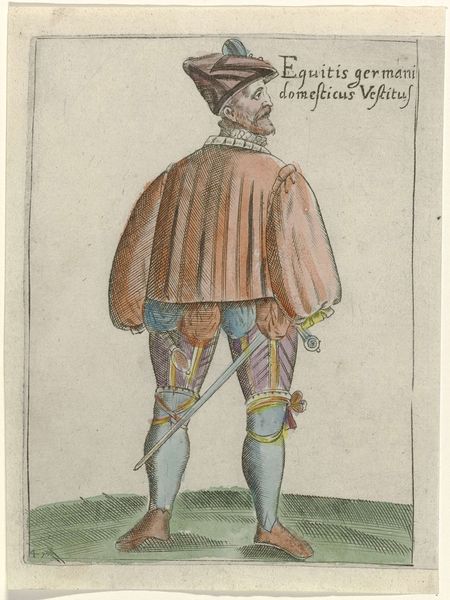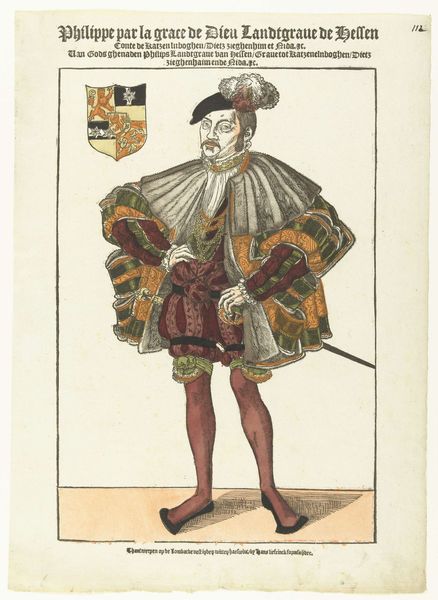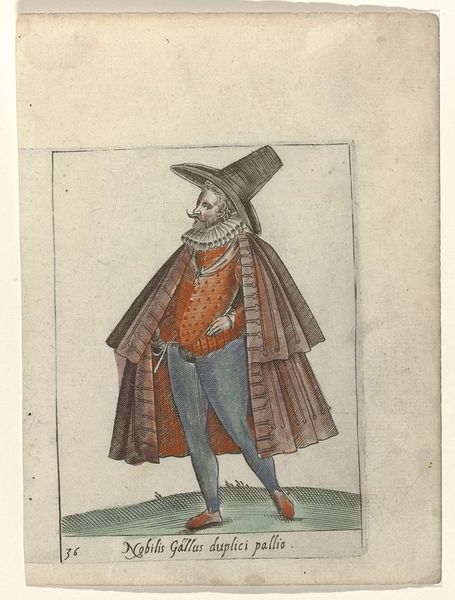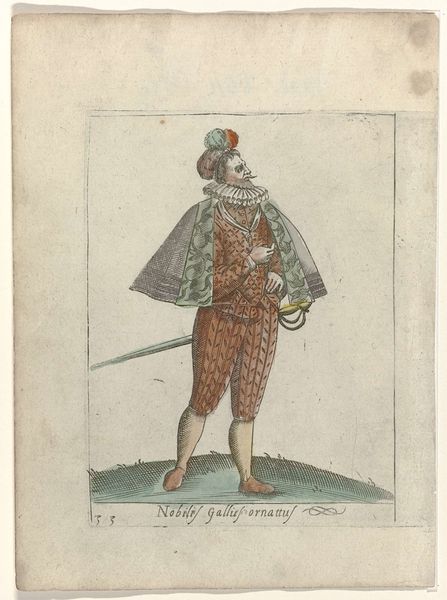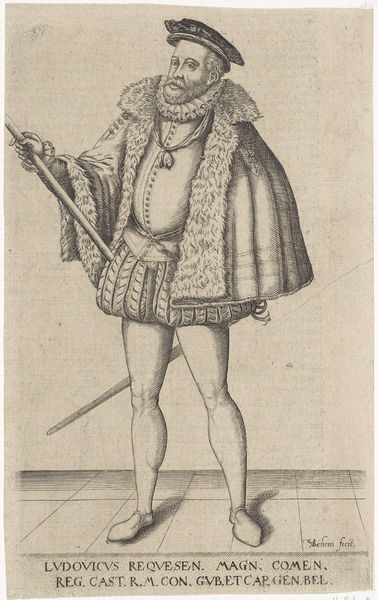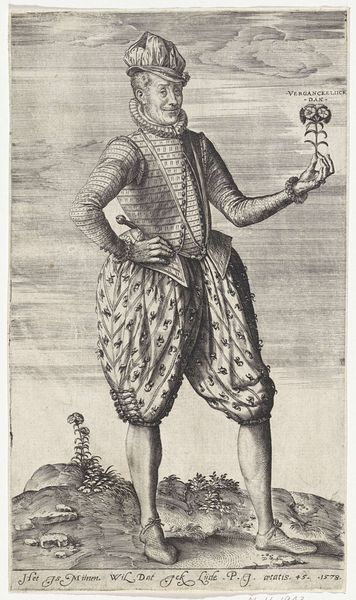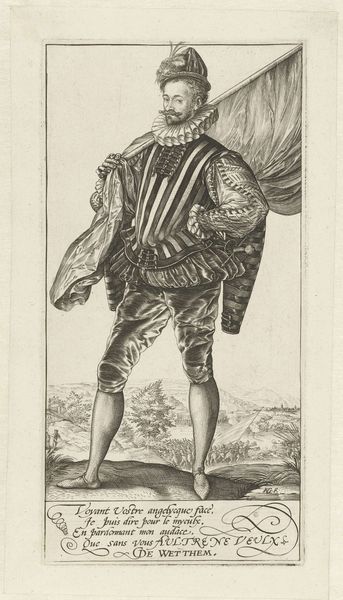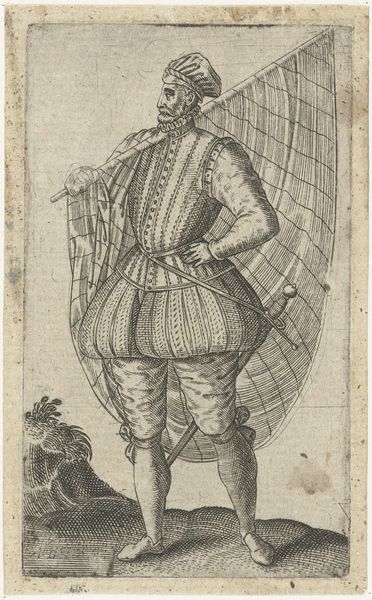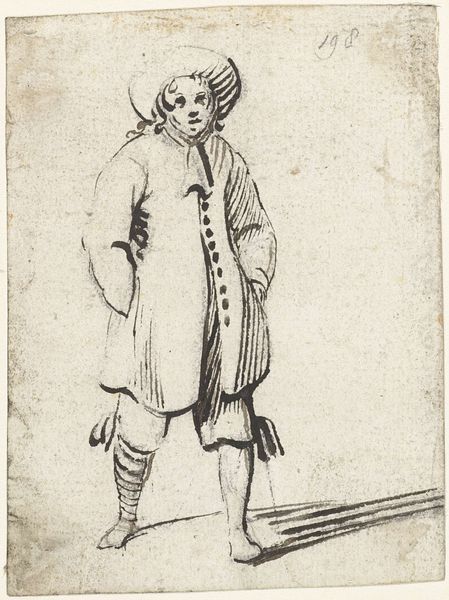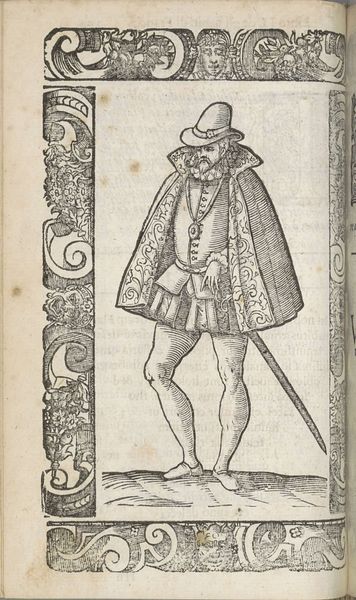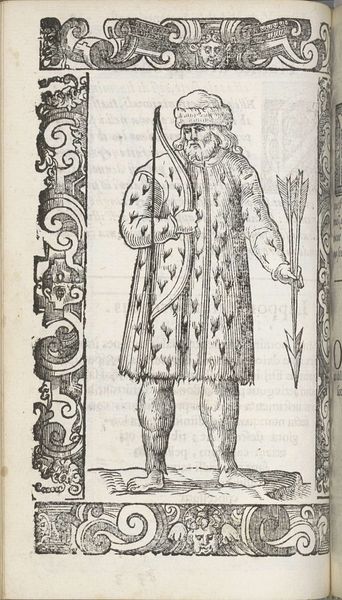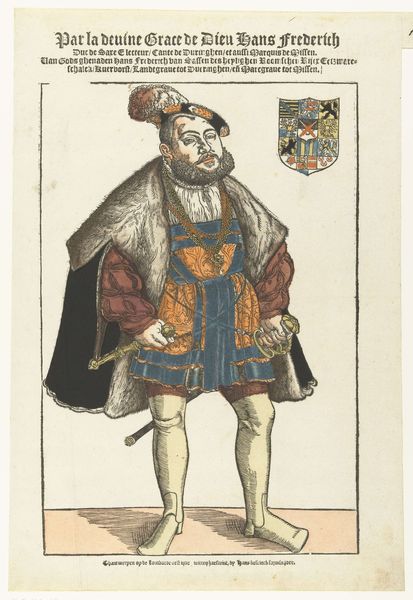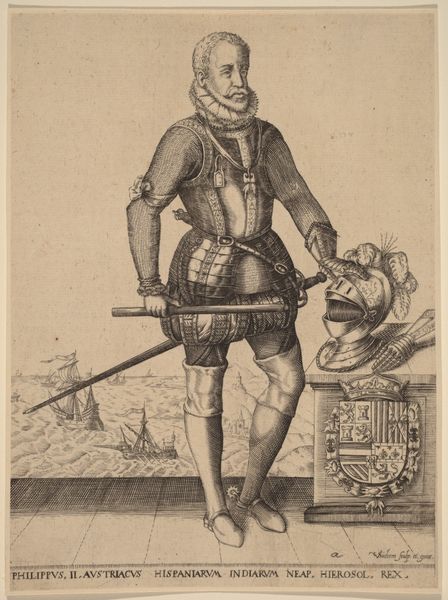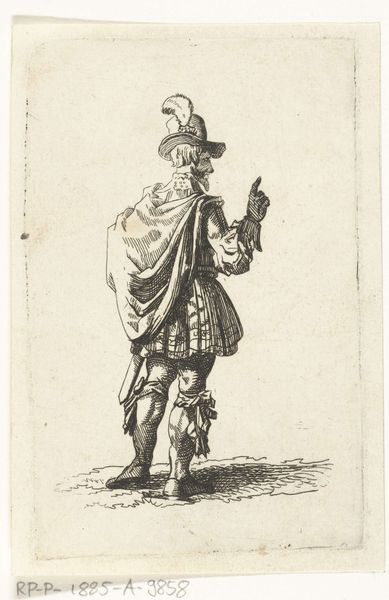
drawing, coloured-pencil, print
#
portrait
#
drawing
#
coloured-pencil
# print
#
11_renaissance
#
coloured pencil
#
sketchbook drawing
#
watercolour illustration
Dimensions: height mm, width mm
Copyright: Rijks Museum: Open Domain
This hand-coloured engraving depicts the ceremonial dress of German nobles, though the artist is unknown and its precise date uncertain. Its Latin inscription, 'Solennis Habitus Optimatum in Germania inferiori' translates to 'Ceremonial Dress of Nobles in Lower Germany'. The image's meaning is largely created by visual codes associated with wealth and status. Sumptuous fabrics, fur trim, and carefully tailored garments speak to the sitter's elevated social standing in the stratified society of early modern Europe. The sword is another signifier of noble status. The engraving would have been produced during the Holy Roman Empire and this artwork reflects a world in which dress codes reinforced social hierarchies and regional identities. Understanding this artwork requires careful attention to the historical context. Costume books and printed portraits served as important tools for disseminating and standardizing ideals of aristocratic identity. Further research into sumptuary laws, court culture, and the material history of textiles would enrich our understanding of this work. Ultimately, the image reminds us that art is always embedded in specific social and institutional contexts.
Comments
No comments
Be the first to comment and join the conversation on the ultimate creative platform.
